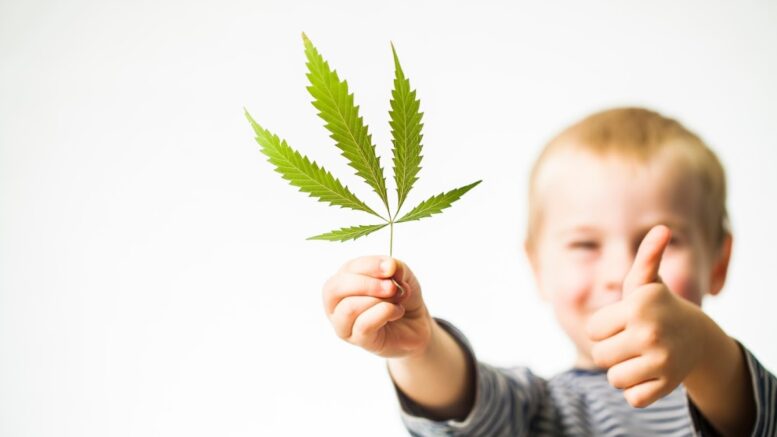Families with loved ones on the autistic spectrum constantly search for ways to improve their quality of life. Therapy is one approach that addresses only one facet of autism—development. There are many more that have to be addressed to achieve the overall holistic management of autism. This is where breakthrough natural remedies like medical marijuana come into the picture. It puts a break on all the chemical medicines the autistic patient will have to take, now with a gentler and more natural approach.
Currently, research is still being done to fully support the claim that medical marijuana can help individuals with autism. If you have anyone dear to you and you’d like to give medical marijuana a try, discuss it with your ReThink-rx Cannabis Doctors or any other reputable cannabis doctor at that. Like all other usages of medical marijuana, it’s not taken to treat autism but rather to help manage its symptoms.
To that end, this article gives you a discussion on how patients with autism can potentially benefit from the proper use of medical marijuana.
The Medications Traditionally Used To Manage Autism
No discussion on medical marijuana can be complete without touching on the different forms of medicines that were traditionally used to manage autism. Understanding what those are and their side effects can help you better understand how proponents of medical marijuana came up with this natural approach.
Atypical psychotics like haloperidol and risperidone are often touted as necessary medications to help manage the symptoms of autism, particularly those surrounding behavioral problems like anger, aggression, and self-injurious tendencies. Taking those atypical psychotics have a strong potential to alleviate those behaviors, but not without dangerous side effects. Involuntary repetitive movements, weight gain, adverse cognitive effects, and hyperprolactinemia are only a few.
With that, it’s, therefore, necessary to weigh those side effects with the benefits of taking atypical psychotics. If there are other treatment forms like medical marijuana said to have little to no side effects, this is a better and more attractive option to choose instead.
The Potential Benefits Of Medical Marijuana
Anecdotes of its potential benefits back up the push for more studies on the safe usage of medical marijuana. Here are a few of those benefits:
- It may help autistic patients process their sensory abilities better, so they’re able to enjoy their surroundings without getting overstimulated by what they see;
- It may improve common autism symptoms like sleep problems, behavioral outbreaks, and anxiety;
- It may reduce the onset of rage and self-injury attacks;
- It may support better language, cognition, social interaction, and attention development.

The Future Of Research
Because of its strong potential in helping patients on the spectrum, the Autism Science Foundation and the American Academy of Pediatrics push for further study on the efficacy of medical marijuana for autistic patients. The future seems quite bright, with many parents and families pushing for its use. Many who volunteered for clinical trials also speak of promising benefits to their autistic family members.
The most important thing to remember is that the choice to use medical marijuana should be supported by quality and reputable medical marijuana doctors. Choose to use only top-notch products, so you’re not being shortlisted for their effects. Like any other treatment form, the benefits should always outweigh the risks. Consider your patient’s individual needs so you can assess with certainty that medical marijuana is truly your best recourse.
The Use Of Other Alternative Treatments For Autism
The choice of families who use medical marijuana for their patients who have autism isn’t very difficult if they come from places where medical marijuana is considered legal. This is, however, only very slim, as the majority of the rest of the world still has to study their respective legislations regarding the legality of medical marijuana.
While waiting for the legality of medical marijuana to be passed in your own country (if it still isn’t), it’s worth knowing that there’s still light at the end of the tunnel. If synthetic medicines aren’t your thing, there are also other alternative treatments worth exploring, like:
- Animal-assisted therapy;
- Homeopathy;
- Biofeedback;
- Acupuncture;
- Yoga.
Remember, however, that these methods aren’t curing forms of autism spectrum disorder. Rather, at the very best, like medical marijuana, they may only help the patient improve and manage their symptoms.
The Bottomline
Autism is a neurodevelopmental disorder that affects a significant number of children and, in the long run, adults, all over the world. This starts early in life and can progress to adulthood, particularly for patients whose medical and developmental needs aren’t addressed. Autistic patients are often subjected to a lifetime of therapy and medications, the latter of which aren’t free from potential side effects. Like all the other potential illnesses it may be effective with, this fact is where research and study on medical marijuana earn the spotlight. If it’s something you like to consider using with an autistic patient, open this discussion with your doctor to be certain you’re doing and using it in the safest and best way possible.
